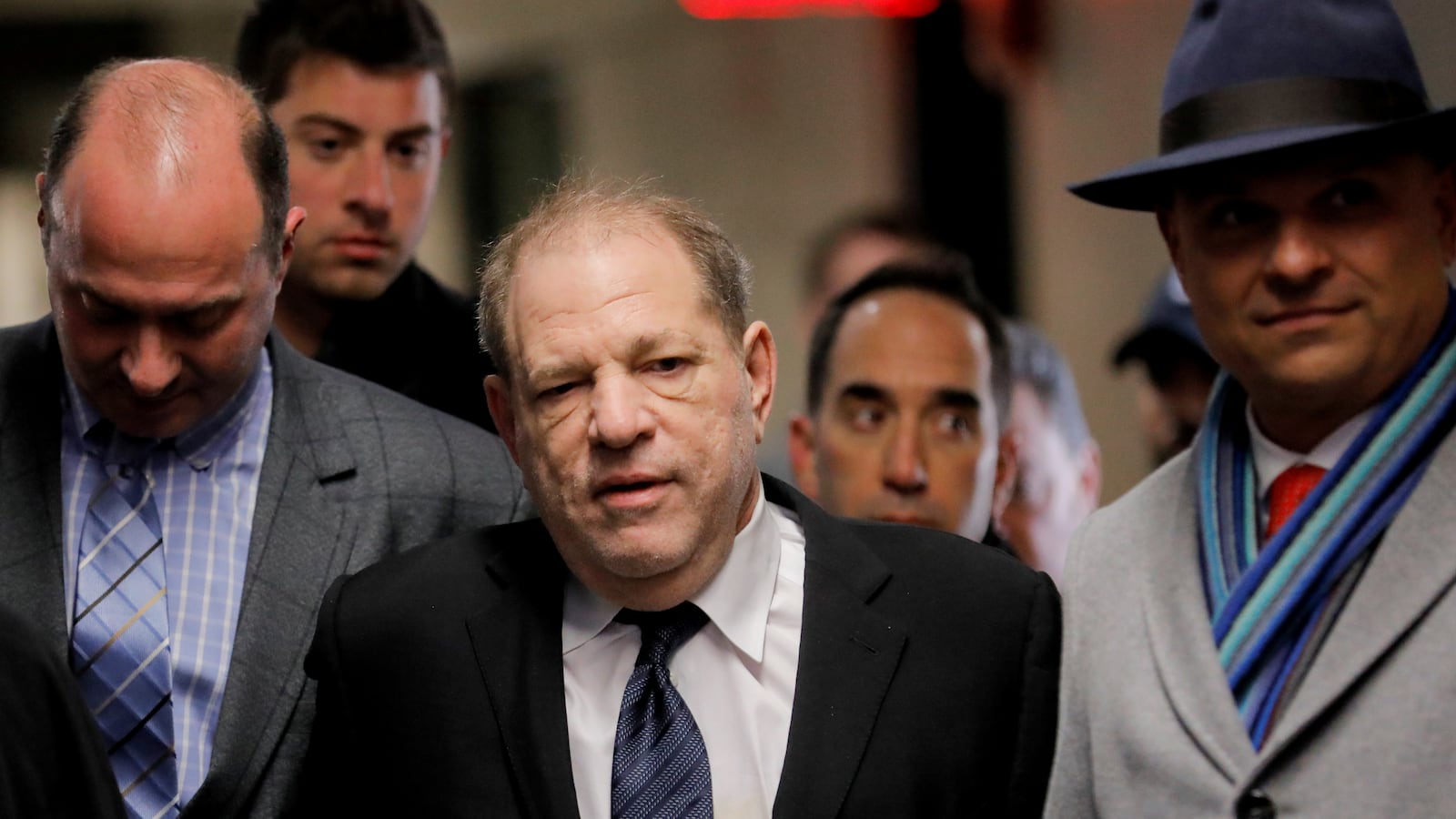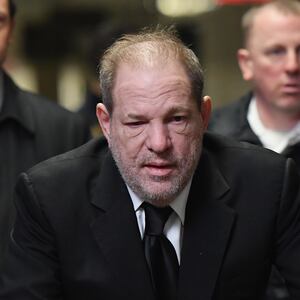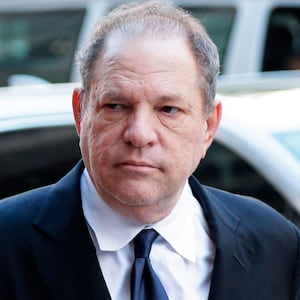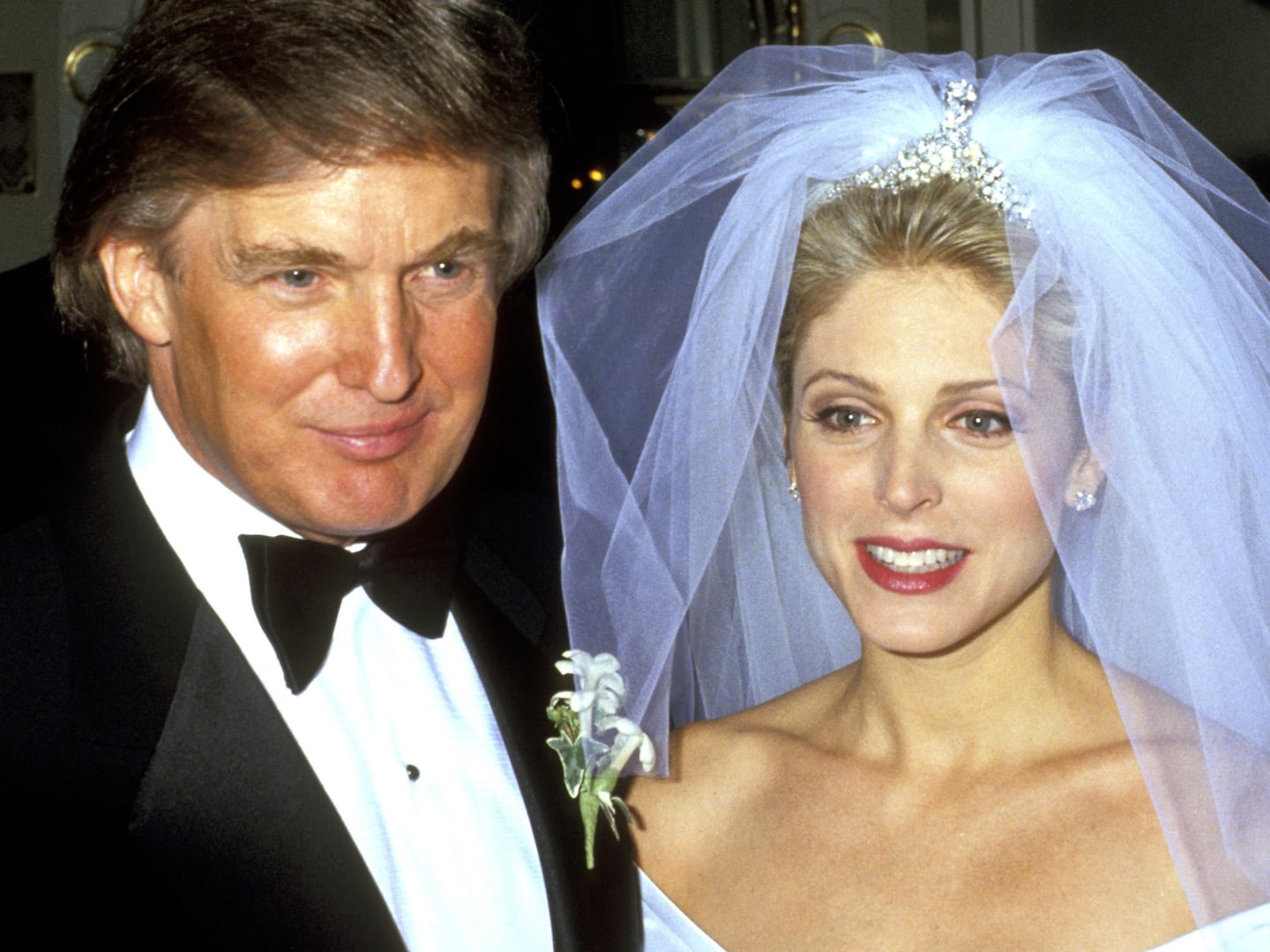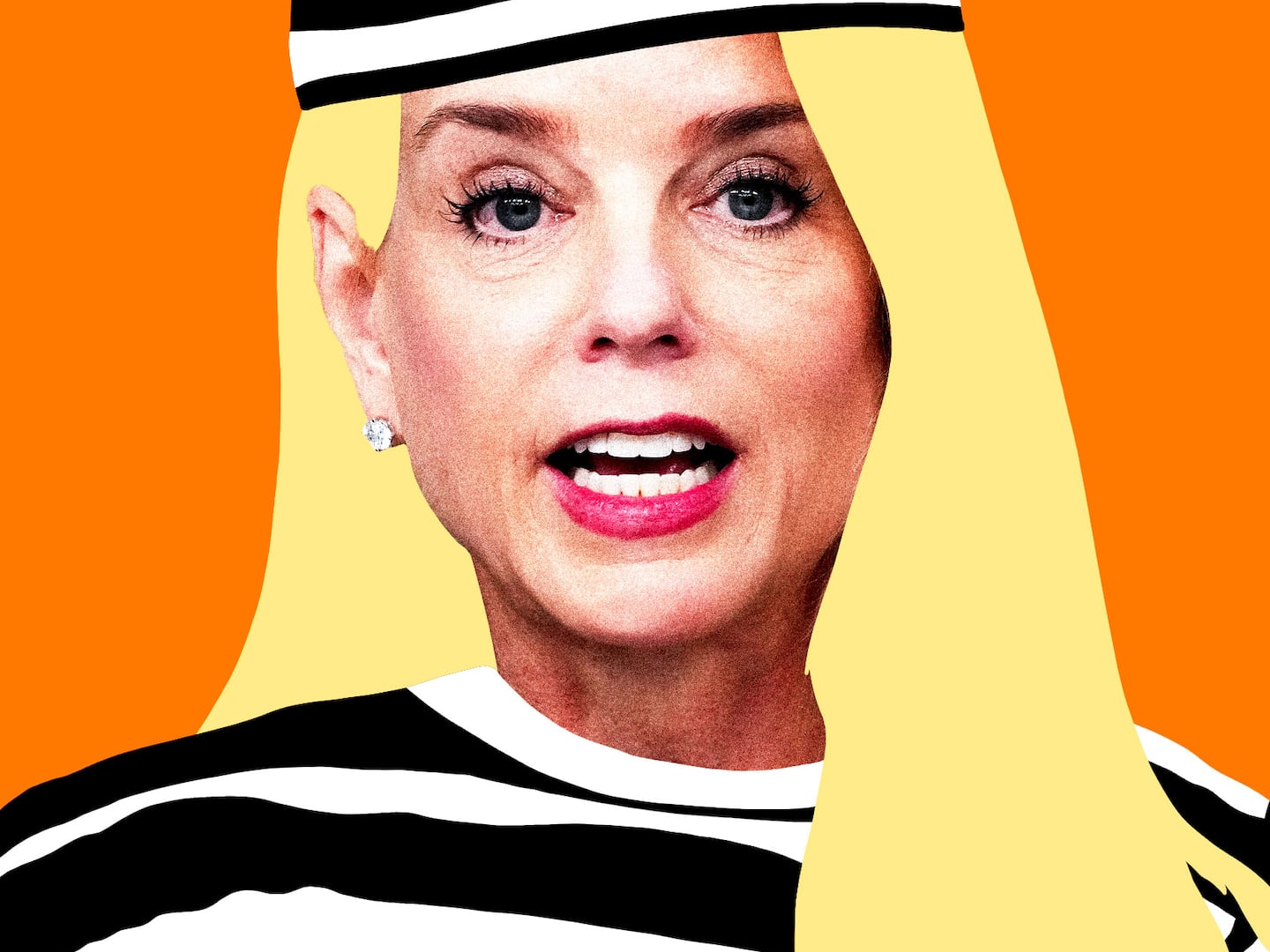Harvey Weinstein was a serial sexual predator who repeatedly used his “power and prestige” to prey on vulnerable young women looking to him for professional help, prosecutors said Wednesday morning during opening arguments at the movie mogul’s landmark rape trial in Manhattan.
“This man, seated right here, was not just a titan in Hollywood, he was a rapist,” Manhattan Assistant District Attorney Meghan Hast declared in New York Supreme Court as she described in graphic detail how Weinstein abused women over several decades, using his immense influence in the entertainment industry “to ensure their silence.”
Weinstein, 67, faces five charges, including predatory sexual assault and first-degree rape, after allegedly performing an unwanted sex act on his former production assistant in 2006 and raping another woman in 2013. The Oscar-winner, who was also hit with sex-crime charges in Los Angeles this month, could face life in prison if convicted. He’s repeatedly denied all allegations of sexual assault.
Opening arguments began after weeks of jury selection, during which hundreds of New Yorkers—including supermodel Gigi Hadid—were screened. Wearing a black suit and orthopedic shoes, Weinstein told reporters he “feels good” as he limped into the packed courtroom with the help of his lawyers and without the walker he’s used at previous court appearances following back surgery for an injury.
“I have good lawyers,” he said before smirking.
Weinstein stared straight ahead as prosecutors told the jury, comprised of seven men and five women, how he targeted, tested, and abused dozens of women using the power he’d amassed from his success in Hollywood.
“He had a desire to conquest,” Hast said.
Since bombshell revelations about Weinstein’s allegedly predatory behavior appeared in The New York Times and The New Yorker, more than 80 women, including many well-known actresses, have come forward to accuse him of sexual misconduct. The allegations catalyzed the global #MeToo movement, inspiring hundreds of women to come forward with their own accounts of sexual harassment or assault at the hands of powerful men in politics, media, and the entertainment industry.
“These were not mutual adult relationships,” Hast said. “These young women were pawns and pushed around by the defendant. They didn’t realize they were being lured in on false promises of professional help—they thought they got the attention of a Hollywood producer.”
Throughout the six-week trial, the jury will hear from six of Weinstein’s accusers—but the prosecution’s case will largely rest on the credibility of the two alleged victims who made the initial 2018 charges: Miriam Haleyi and Jessica Mann.
Hast said Wednesday that Weinstein forcibly “yanked” out Haleyi’s tampon and performed oral sex on the former production assistant at his SoHo home in 2006. Mann, who has remained anonymous until Wednesday, was allegedly raped by the Pulp Fiction producer in a New York hotel room in 2013.
“Miriam will describe to you how the defendant manipulated the situation, how he made her feel like it was her fault,” Hast argued. “That she ruined any chance of a professional relationship.”
Prosecutors said that on July 10, 2006, Weinstein ordered a car to take Haleyi to his apartment after he returned from a trip to Paris. At the time, she had already turned down his advances multiple times, including his request for a massage at the Cannes Film Festival.
Once inside the apartment, Weinstein allegedly “lunged” toward Haleyi in an attempt to “grope and kiss her.” Haleyi tried to “distance herself and told him again she was not interested in anything sexual,” but Weinstein “had already made his determination, after analyzing Miriam’s behavior and reactions... that she was somebody he could sexually assault,” prosecutors said.
Haleyi will testify that Weinstein backed her into his bedroom and forcibly sexually assaulted her in 2006, then raped her years several later in a Tribeca hotel, according to prosecutors.
While she told a roommate about the initial assault, prosecutors argued she was too scared to go to the police and even tried to maintain a friendly relationship with Weinstein to save her career.
“She didn’t feel she was any match for Harvey Weinstein,” Hast said. “She had nothing, no family, no home, no nothing. He was a titan in the entertainment industry.”
Prosecutors said Mann, an aspiring actress, had a brief and abusive relationship with Weinstein after the two met at a Hollywood party in 2013. After promising her and a friend lead parts in upcoming movies, Weinstein allegedly “violently” raped her twice in a hotel room.
Mann is expected to testify that after she was allegedly raped on May 18, 2013, at the Doubletree Hotel in New York, she found a needle in the bathroom that she said Weinstein used to inject himself with “medicine” enabling him to get an erection.
In a separate encounter, Mann alleges Weinstein pulled her into a hotel room, pinned her down on a bed, and forcibly performed oral sex on her—until she faked an orgasm to stop the abuse. Weinstein also forced her to perform oral sex on him on another occasion, prosecutors said Wednesday.
The decision to have “some sort of relationship” with Weinstein for the sake of her career, Hast said, destroyed Mann emotionally and even led the aspiring actress to contemplate suicide.
“Over the next few months, years, she continued to see him. You will learn that Jessica Mann felt trapped. She felt that there was no way to get out without suffering her friends, her career, or worse, physical harm,” Hast said. “Jessica Mann tried to put on a brave face, pretending to the world that nothing was wrong. All the while, you will learn, she was dying inside."
At his rape trial, jurors will also hear from four other women who are expected to testify as corroborating accusers—including Sopranos actor Annabella Sciorra, who alleges Weinstein raped her inside her Manhattan apartment in 1993 or 1994.
Prosecutors said Wednesday that while Sciorra and the three other women’s accusations fall outside the statute of limitations, their testimony will prove Weinstein’s pattern of vile criminal behavior. As Hast described how these women will testify about a shared “shame and humiliation,” the prosecutor displayed pictures of Weinstein at red-carpet events and posing with former President Bill Clinton.
“Annabella did not call the police nor did she not tell anybody for years. She thought if she ignored it, if she tried to push it down, she could pretend it would never happen,” Hast argued. “Despite her efforts, you will learn, Anabella was not successful.”
Another supporting witness, Dawn Dunning, alleges Weinstein offered to cast her in three movies in exchange for a threesome with his assistant. When she refused, Hast said the Oscar-winner screamed at her: “This is how the industry works! How do you think other actresses got ahead.”
Dunning, who first told her story to the Times, said she ran into the hallway and fled.
Lauren Young, another woman expected to testify at the trial, alleges Weinstein trapped her in a bathroom at the Montage Hotel in Beverly Hills, where he grabbed her breasts and masturbated onto the floor, prosecutors said Wednesday. The third witness, an unnamed waitress, is expected to tell jurors Weinstein raped her inside his New York City apartment in 2015—an incident she’s never previously discussed.
“Who would believe her?” Hast asked the jurors, as Weinstein appeared to take notes across the courtroom. “He was Harvey Weinstein, and she was a waitress.”
Defense attorney Damon Cheronis argued during opening statements on Wednesday that Weinstein had consensual relationships with the women who will be testifying and said the prosecution’s arguments are part of “a narrative that was spun to explain the inexplicable.”
“They are trying to shift around the inexplicable,” Cheronis said of the women. “The truth doesn’t change, the truth doesn’t change when the article comes out in 2017, and what we are going to do throughout the course of this trial is to show you the truth. ‘Victim’ is a conclusion that is only made after the case.”
Cheronis added that through cross-examination and countless emails, the defense can prove that Weinstein was not a “predator.”
“When Jessica Mann lost her phone she reached out to Harvey to say, ‘Here’s my new number,’” he said, claiming the message is as an example of their “loving relationship.”
Defense lawyers also stated they plan to show jurors discrepancies in some of Weinstein’s accuser’s stories, alleging that Dunning and Sciorra discussed their sexual encounters with the Hollywood producer to others but didn’t claim they were sexual assault.
“What we are going to show you throughout the course of this trial, is that there is another side to the story. From what I said from the beginning, the truth doesn’t change,” Cheronis said.

